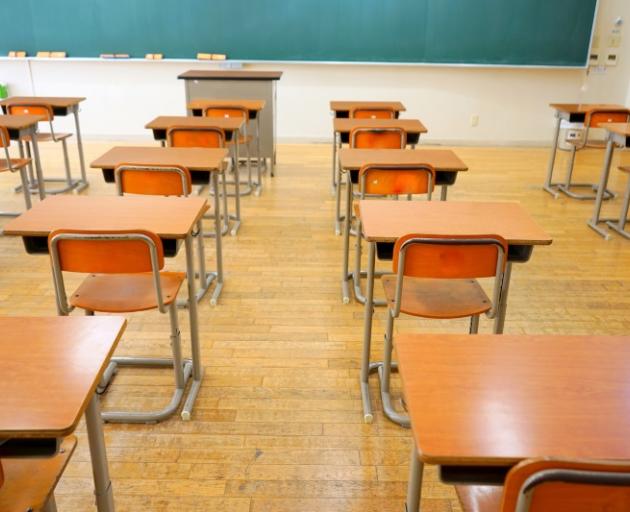Politics
Primary School Teachers Set for Strike Vote Amid Pay Dispute

A significant decision looms for primary school teachers in New Zealand, who are set to vote on potential strike action following a pay offer deemed insufficient by the Education Institute (NZEI). The offer, which proposes a pay increase of between 2.7% and 4.6% over the next two years, was presented to the union on Friday and the voting period closed on Monday evening. Teachers expressed concerns that the proposal does not adequately address the pressing cost-of-living issues affecting their livelihoods.
According to Liam Rutherford, the lead negotiator for NZEI, the current offer fails to keep pace with inflation, which stands at approximately 2.7%. He described the situation as “the last straw” for many educators. Rutherford emphasized the need to attract and retain quality teachers, stating, “If we want the best for children, we need to attract and retain great teachers, and right now, we’re seeing teachers burn out, leave for Australia, or move to work in other professions.”
The union highlighted that classroom support is also a critical issue, particularly as the number of children with additional needs continues to rise. As a response to the rejected pay offer, NZEI announced that a strike ballot will open for primary teachers, principals, support staff, and learning support specialists. This ballot will remain open until September 16.
In contrast, Sir Brian, the Public Service Commissioner, defended the offer as fair and fiscally responsible, claiming it meets the necessary cost-of-living pressures. He stated, “The offer rewards experienced teachers with meaningful pay increases. The offer for less experienced teachers still exceeds inflation.” He urged teachers to carefully consider the implications of ongoing strike action, especially in light of what he described as a very fair offer.
Earlier this year, the Ministry of Education proposed three incremental pay rises of 1% each over a three-year period. However, following two weeks of stop-work meetings in August involving primary schools, principals, and support staff, dissatisfaction among teachers grew. NZEI has indicated that educators feel undervalued and that any pay proposals should prevent them from falling behind economically.
The situation reflects a broader trend in the educational sector, with secondary school teachers also having taken strike action last month over similar pay disputes. As the vote on strike action approaches, the outcomes could significantly impact the future of education in New Zealand and the conditions under which teachers operate.
-

 World3 weeks ago
World3 weeks agoPrivate Funeral Held for Dean Field and His Three Children
-

 Top Stories3 weeks ago
Top Stories3 weeks agoFuneral Planned for Field Siblings After Tragic House Fire
-

 Sports3 months ago
Sports3 months agoNetball New Zealand Stands Down Dame Noeline Taurua for Series
-

 Entertainment3 months ago
Entertainment3 months agoTributes Pour In for Lachlan Rofe, Reality Star, Dead at 47
-

 Entertainment2 months ago
Entertainment2 months agoNew ‘Maverick’ Chaser Joins Beat the Chasers Season Finale
-

 Sports3 months ago
Sports3 months agoSilver Ferns Legend Laura Langman Criticizes Team’s Attitude
-

 Sports1 month ago
Sports1 month agoEli Katoa Rushed to Hospital After Sideline Incident During Match
-

 World4 weeks ago
World4 weeks agoInvestigation Underway in Tragic Sanson House Fire Involving Family
-

 Politics2 months ago
Politics2 months agoNetball NZ Calls for Respect Amid Dame Taurua’s Standoff
-

 Top Stories3 weeks ago
Top Stories3 weeks agoShock and Grief Follow Tragic Family Deaths in New Zealand
-

 Entertainment7 days ago
Entertainment7 days agoJacinda Ardern Discusses Popularity Decline on Graham Norton Show
-

 Sports2 weeks ago
Sports2 weeks agoEli Katoa Shares Positive Recovery Update After Brain Surgery


















